Steve Hofmeyr played to a sold-out crowd in Orania.
“There he is,” Mail & Guardian pictures editor Paul Botes nudges me. It has been a nervous few moments before our breakfast interview, given the allegations of racism levelled against Steve Hofmeyr. And it is right in the Boer heart of the Afrikaners-only enclave of Orania, nogal.
There he is, indeed, pausing and taking in the scene outside the Oewerpark log cabin restaurant on the banks of the Orange River.
Hofmeyr enters the restaurant with the confidence of a man recognisable to everyone, including this nervous black journalist, pen and notebook ready.
Orania Movement leader Carel Boshoff Jnr, who went out of his way to arrange the eyeball to eyeball between me and the alleged ultra-racist, directs him to our table.
Hofmeyr, in shorts, T-shirt and slops, joins us with a broad smile, apparently very much aware he is to have an interview with someone not of his volk. He takes a chair, fixing his intense blue eyes on mine, and stroking a greying goatee. The other people in the restaurant, seated at log-furniture tables, all of them white, and most probably Afrikaners, steal glances at our table, as if wondering what business Hofmeyr has with a darkie.
The waitress, a pink-cheeked young Afrikaner, takes orders and brings us what tastes like moerkoffie.
“Hell, I have been burning bridges of late” – Hofmeyr’s first words, before an otherwise cordial but at times unsettling interview, following the sold-out leg of his Toeka tour in Orania on Friday March 6. His acting-school-trained voice falls somewhere between Pik Botha’s gravelly tone and Neil Diamond’s velvety vocals.
Questions of race
He pushes his coffee to one side, inches forward towards me. In a rapid monologue, like a church elder, he starts. “Am I a racist to say the high incidence of rape among coloureds has contributed to the national crime statistics going through the roof?”
I feel like saying, “Steve! Are you sure you want to say a thing like that?”, but I lack the courage. I’m sure my facial expression and body language are telling him about my discomfort and I change the topic.
I tell him that I am the son of a farm-school headmaster, who was also a lay preacher in the Nederduitse Gereformeerde Kerk.
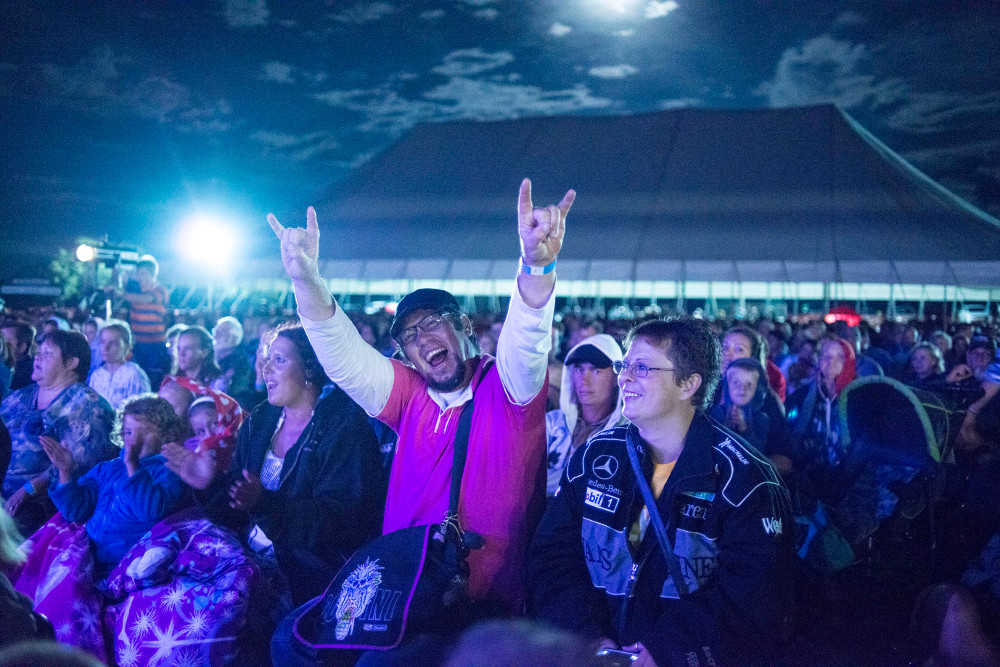
The Steve Hofmeyr concert was a big hit among the Orania volk, although not everyone was swept along by their enthusiasm. (Photos: Paul Botes, M&G)
He changes gear, suddenly, from right-wing rabble-rouser playing to an audience to a warm fellow human being.
“Lewe jou pa nog [is your father still alive]?” he asks.
May NG Kerk ouderling (elder) Reuban Masilela’s soul rest in peace, I think.
For a few moments there’s silence, but not an uncomfortable one. We stare out the window and start talking about the good mealie crop across the river. A flock of cattle egrets take off and fly over the water and beyond the plants.
Chester Missing
Hofmeyr does not seem averse to adversity, and burning the odd bridge. Which one was he referring to at the beginning of our chat? I ask.
It is the now-curdled relationship with the puppeteer, comedian and ventriloquist Conrad Koch, better known for his provocative Chester Missing puppet.
“I don’t talk to that man anymore,” Hofmeyr responds curtly.
The Afrikaans singer was moered indirectly, but hard, in court by Missing/Koch at the end of last year. It started with Hofmeyr tweeting that “blacks were the architects of apartheid”. It descended into a Twitter war when Missing called Hofmeyr a racist and encouraged Hofmeyr’s sponsors to withdraw their support for him, including a sponsored bakkie, which happened.
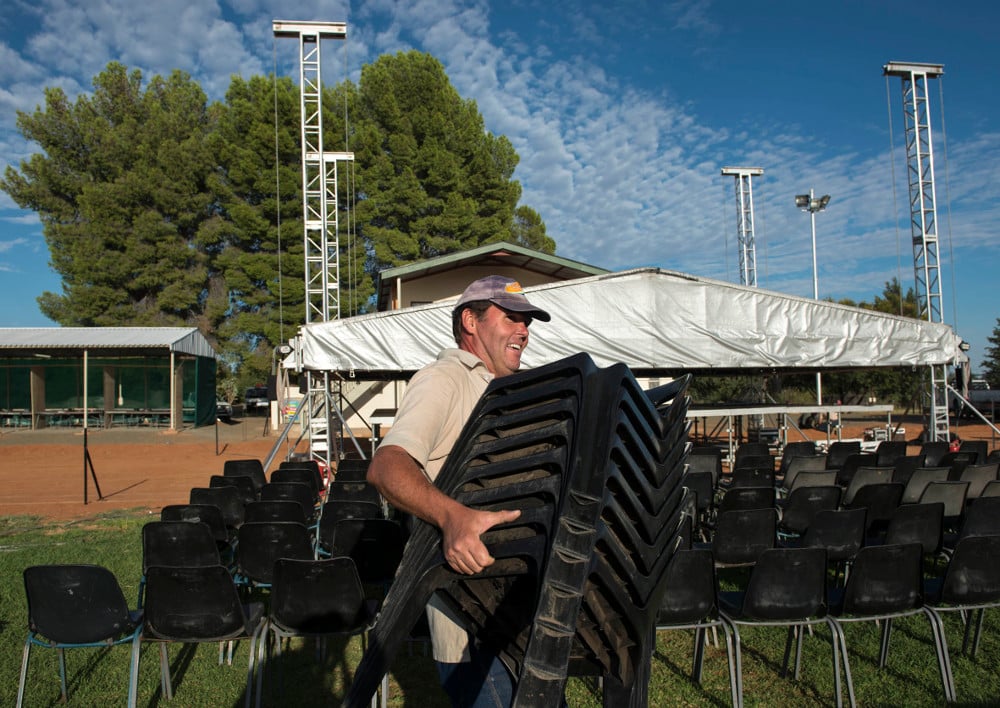
Dawid Fourie, who helped prepare the venue, said he didn’t want to see Hofmeyr or hear him – he had more important things to do.
Right-wing activist Dan Roodt then took Koch (the person) to court to stop Missing (the puppet) from “harassing” his friend Hofmeyr.
“Mr Hofmeyr must be held accountable for what he did; he can’t then, when he’s criticised, say it’s not fair,” Koch’s lawyer, Steven Budlender, told the court. “Mr Hofmeyr is entitled to go on his racist raids, but Mr Koch is also allowed to criticise those racist raids.”
Magistrate Naren Sewnarain dismissed Roodt’s application as “unreasonable and fictitious”, set aside the order and made a costs order against him.
Hofmeyr is clearly not keen to discuss the bloody nose his friend took in court, but he has a simple message for the volk: “There is no justice at the courts.”
The Citizen irony
He clearly feels beleaguered and also mentions the Citizen newspaper by name, with which he is threatening to cut ties. The irony is rich because the tabloid was founded in 1976 as a pro-National Party newspaper from a secret slush fund by the then department of information. The Citizen was also known, especially during the 1980s, for its cosiness with the right wing.
Hofmeyr clearly feels he can pour out his heart – my magtig! the man has even trusted me with his private cellphone number and email address – about why he is “disillusioned”, and the damage to his image because of his convictions.
Among these unwavering convictions is his repeated view, the one that got that pesky puppet on his and Roodt’s backs, that black people were responsible for their own oppression during apartheid.
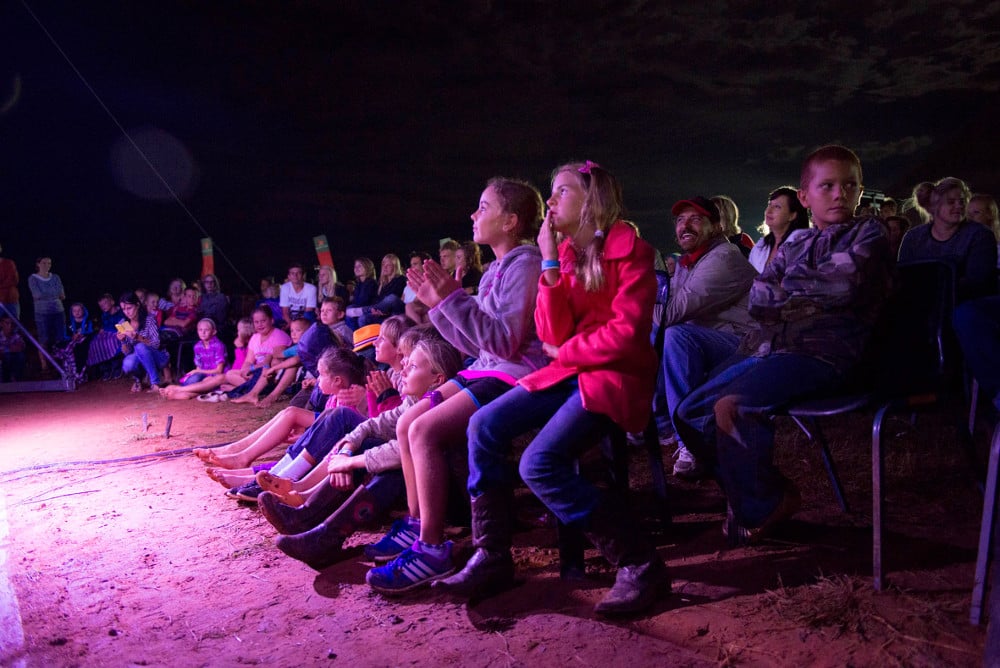
Hofmeyr said it been difficult to agree to perform in Orania because of logistical problems such as proper infrastructure.
“It was a spiritual thing for us, the Afrikaner minority, to realise that the oppression of black people was not right. We did not wait for black people to find a way around this, because it was a white problem.
“We voted in the referendum in overwhelming numbers to say, enough! It was a white solution to a white problem …”
And he readily admits he also voted “yes”.
But he recounts his journey from then, when he viewed himself as a South African first, to his position now, which is Afrikaner first, because he believes his people are under threat.
Dwindling festival space
Hofmeyr’s space in the mainstream festival circuit is being rapidly squeezed, and he is laying the blame squarely at the door of three apparently all-powerful decision-makers: festival organisers, sponsors and then ANC and DA municipalities.
Boshoff Jnr, who is the son of the Orania pioneer, the late Professor Carel Boshoff, placed on record in a separate interview that plans had been in the pipeline for two years to bring Hofmeyr to Orania, and that the Toeka concert had nothing to do with mainstream festivals slamming the door in the singer’s face.
Hofmeyr adds that it has been difficult to agree to perform in Orania in recent years, but that was because of logistical problems such as proper infrastructure.
Never mind the well-documented racial rants, from time to time Hofmeyr makes reference to his “black friends”.
The prerecorded prelude to the Orania evening concert paid tribute to yesteryear’s musical icons, among them the late Margaret Singana, of the 1970s mass opera Ipi Tombi fame.
Suffice to say, during apartheid urban legend had it that streetwise white people would paint their faces with black shoe polish and sneak into the townships for a rare glimpse of the then internationally acclaimed Singana performing in concert or cabaret.
Back to Hofmeyr. “My black friends? I have had many black friends. I used to tour with Yvonne Chaka Chaka, Brenda Fassie, Steve Kekana … you name them.”
Hofmeyr laments that in this his “time of need”, his black friends have failed to rise to his defence, against the backdrop of what he calls his own fight against racial discrimination during his entire adult life.
United by ideology, some are still more equal than others
I hope it will be of comfort to Steve Hofmeyr that his Toeka concert at the school sports grounds in Orania was attended by at least one new-found black fan – yours truly – among more than 1 800 white Afrikaners, who all but one met me with smiles.
The reason why there were no other black people in the audience could be attributed to the fact that Orania is far from other Northern Cape towns, meaning those who might have wanted to come would have had to have the money for both the entry fee and accommodation at the lodge. Of course, there are no black people living in Orania.
The concert was largely promoted through social media and by word of mouth. A lone poster at the Orania tourism office was testimony to that.
Before the concert, the M&G team took to the streets to weigh up the reaction of locals about the imminent arrival of right-wing Afrikanerdom’s favourite son.
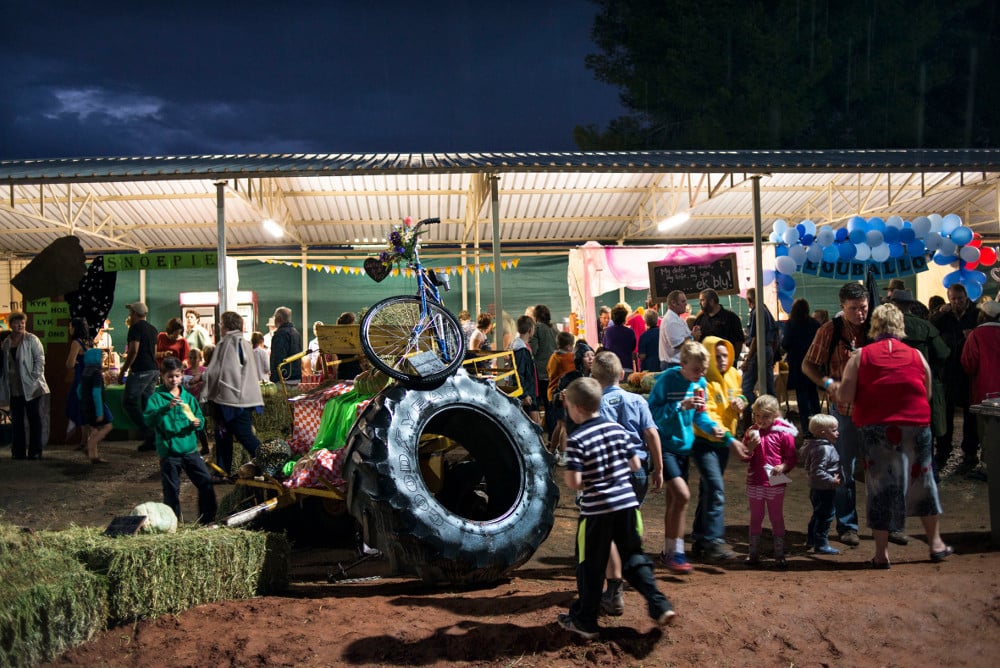
The town tried for a long time to entice the singer to perform there and, when the big night arrived, a carnival atmosphere reigned at the school sports ground.
A petrol attendant, Johan von Biljon, said he could not make it to the show because he would be working, and he was also in mourning following the death of a colleague.
His brother, Nico, was definitely attending, and boasted about how he played only Afrikaans music, both contemporary and boeremusiek.
Walking past was another man (he did not want to give his name). He provides gardening services in Orania and said the predikant had put pressure on him to “mow down” his lawn because Hofmeyr would soon be in town.
But, the man asked: “Wie die duiwel is Steve Hofmeyr? Hy is net ‘n mens so ek and jy. [Who the hell is Steve Hofmeyr? He is just a human like me and you].”
The Toeka concert audience was largely made up of upper-middle-class Orania, as well as Hofmeyr’s followers from surrounding towns and even as far afield as Gauteng.
“If the mainstream festivals can’t take Steve Hofmeyr to the people, the people shall go to Steve Hofmeyr,” the singer said in an interview the next morning.
And a lot more people, particularly the elderly locals, might have attended had it not been for a downpour shortly before the start of the concert.
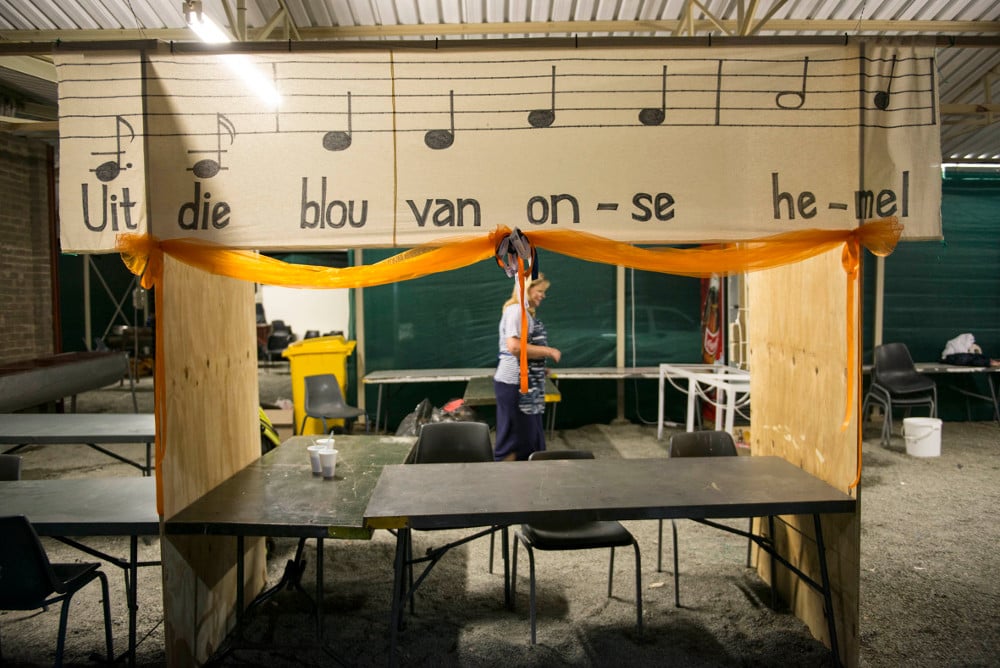
Steve Hofmeyr ended his performance by leading the crowd in the singing of ‘Die Stem’.
But he had the audience eating out of his hand. It was vintage Hofmeyr, arguably one of South Africa’s best-selling artists, dishing out nostalgic ballads from the Springbok Radio era and, inevitably, his favourite, Neil Diamond. His 2009 album of Diamond songs, Solitary Man: Songs of Neil Diamond, was a bestseller.
What a pity there were not more black people to experience this moving tribute to Afrikaans music, culture and language. But, then, what could one expect with Hofmeyr having become such a divisive character, with views that suggest apartheid denialism.
The show started with a potpourri of country classics and Afrikaans folk songs, but, towards the end, the tone changed dramatically. An emotionally charged Hofmeyr, against the backdrop of fingers gently stroking the guitar, narrated the challenges that he and other right-wingers believe were facing their beloved white Afrikaner minority –farm murders … affirmative action … Eskom … geographical name changes … crime … and more crime.
Things rose to a crescendo, a grand finale, and as we all rose to our feet – I wasn’t going to risk sitting down – the volk firebrand led us in the singing of Die Stem. The show was over and the Steve Hofmeyr ossewa was rolling back to the ol’ Transvaal for the next leg of the Toeka tour in Klerksdorp.
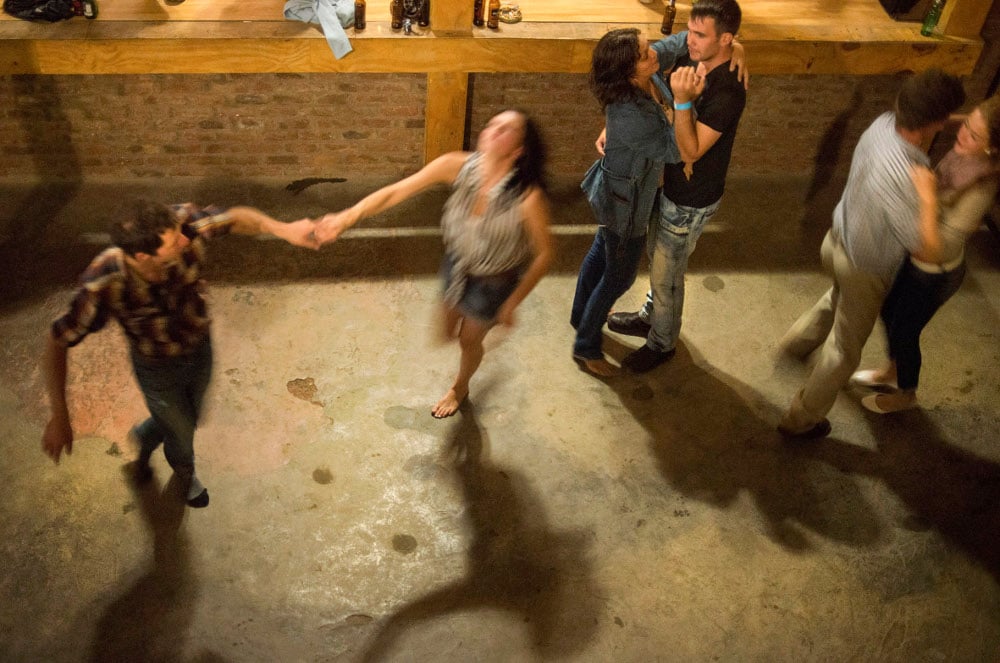
The partying went on in De Boer bar long after the show.
We went for a nightcap with some of the young Hofmeyr fans in the local De Boer bar up the road from where the concert was held. And what else but to have a sip or two of the local mampoer. Many friendly people came to introduce themselves.
Couples were doing serious sokkie to the loud Afrikaans music. Some guys were playing pool.
A farmer, not an Orania local, was introduced to us. He refused to shake my hand. We initially thought it was a joke or that we had misunderstood him. But he was serious. “Dis teen my geloof [it’s against my belief],” he insisted.
The friendly Orania PR who was with us looked away, seriously uncomfortable.
Even with the loud music, there was an uncomfortable silence.